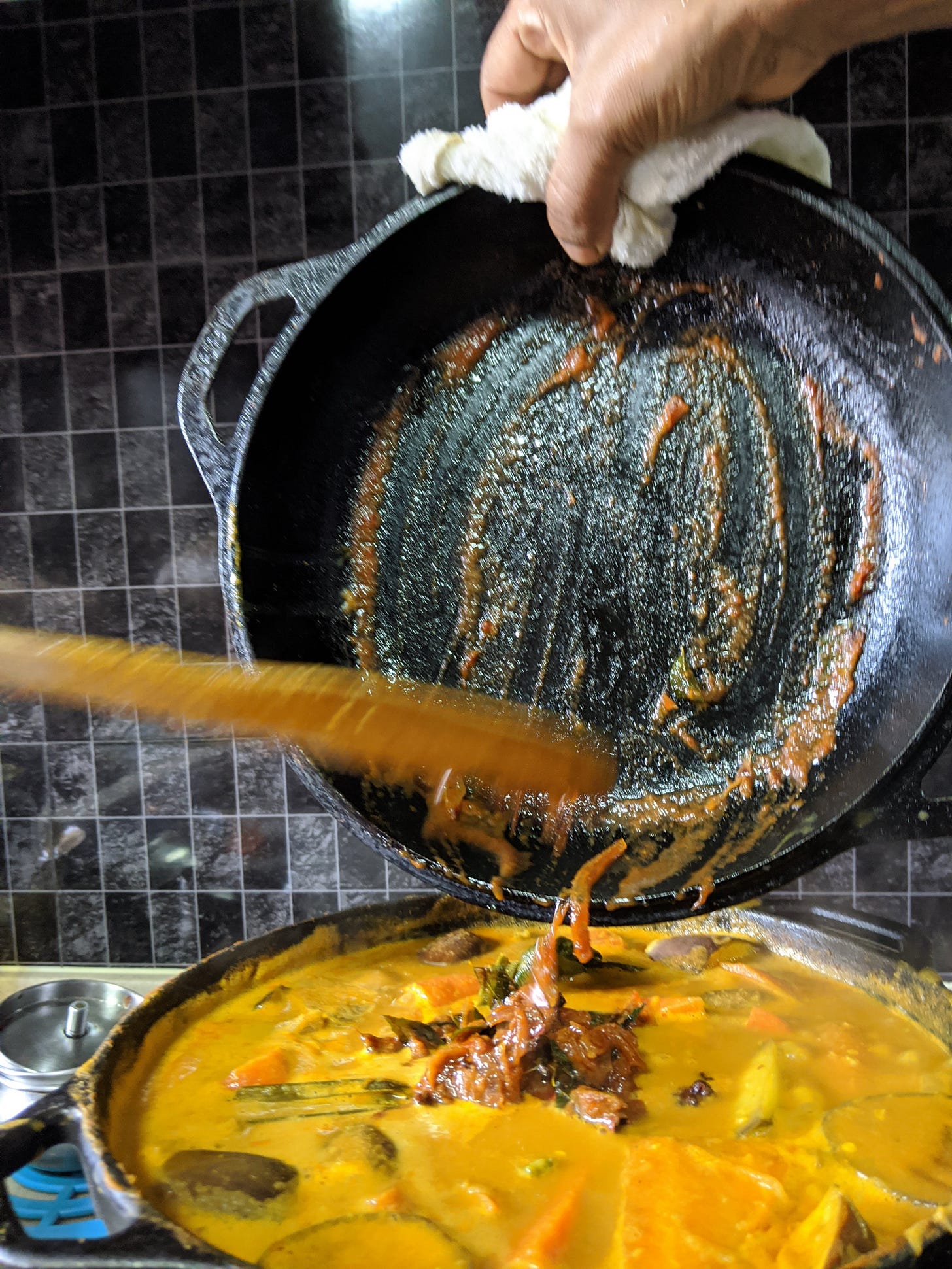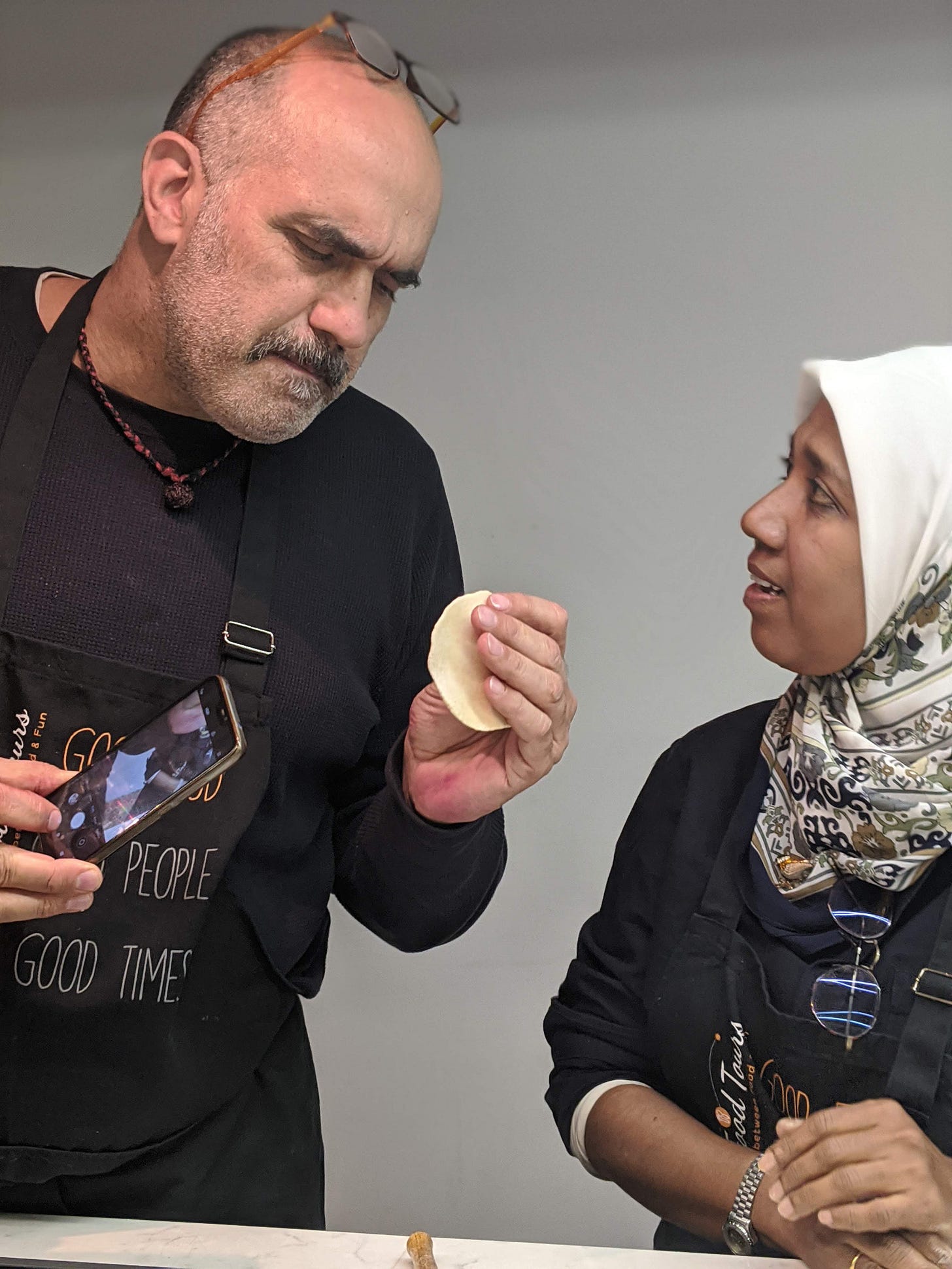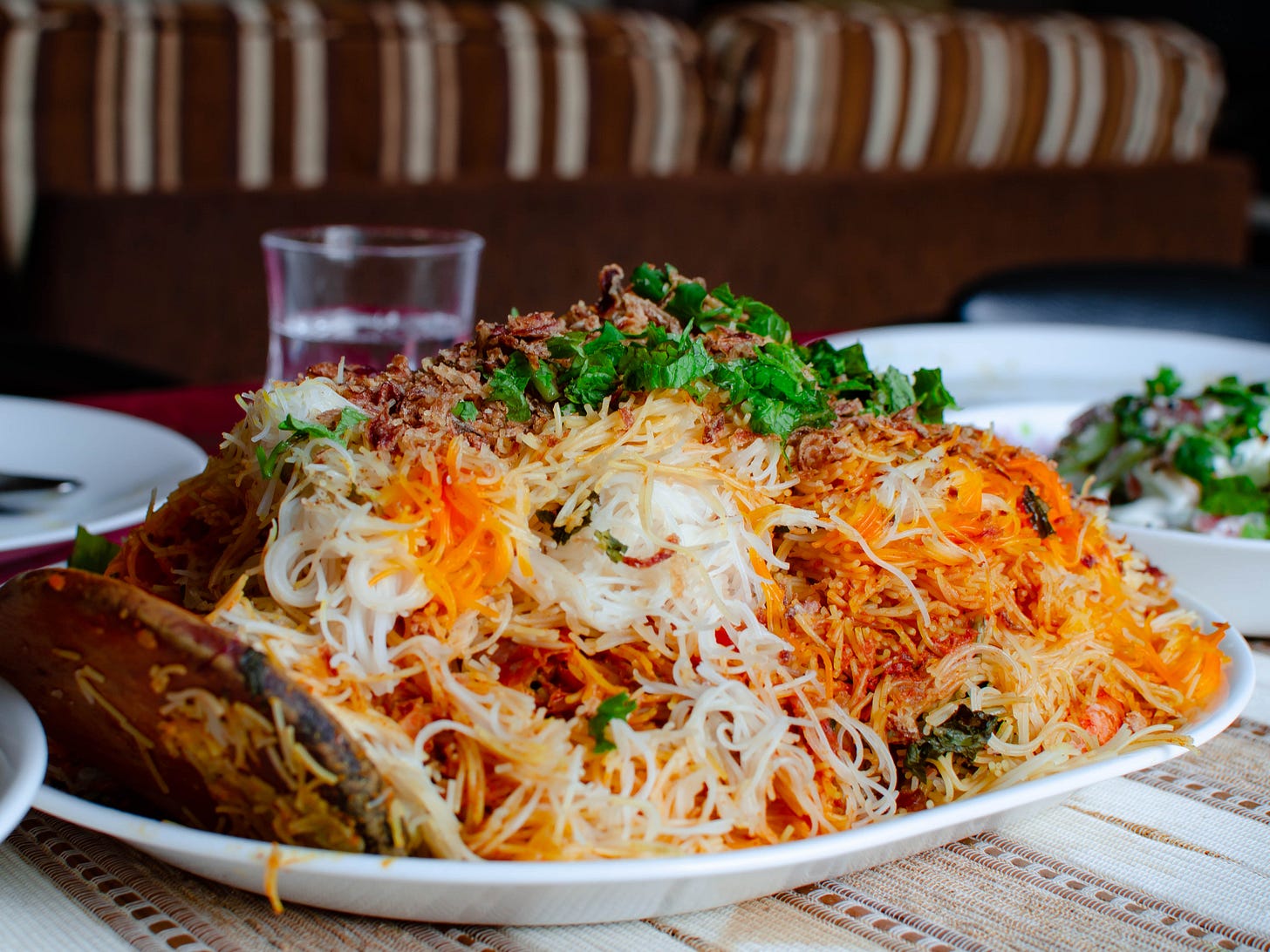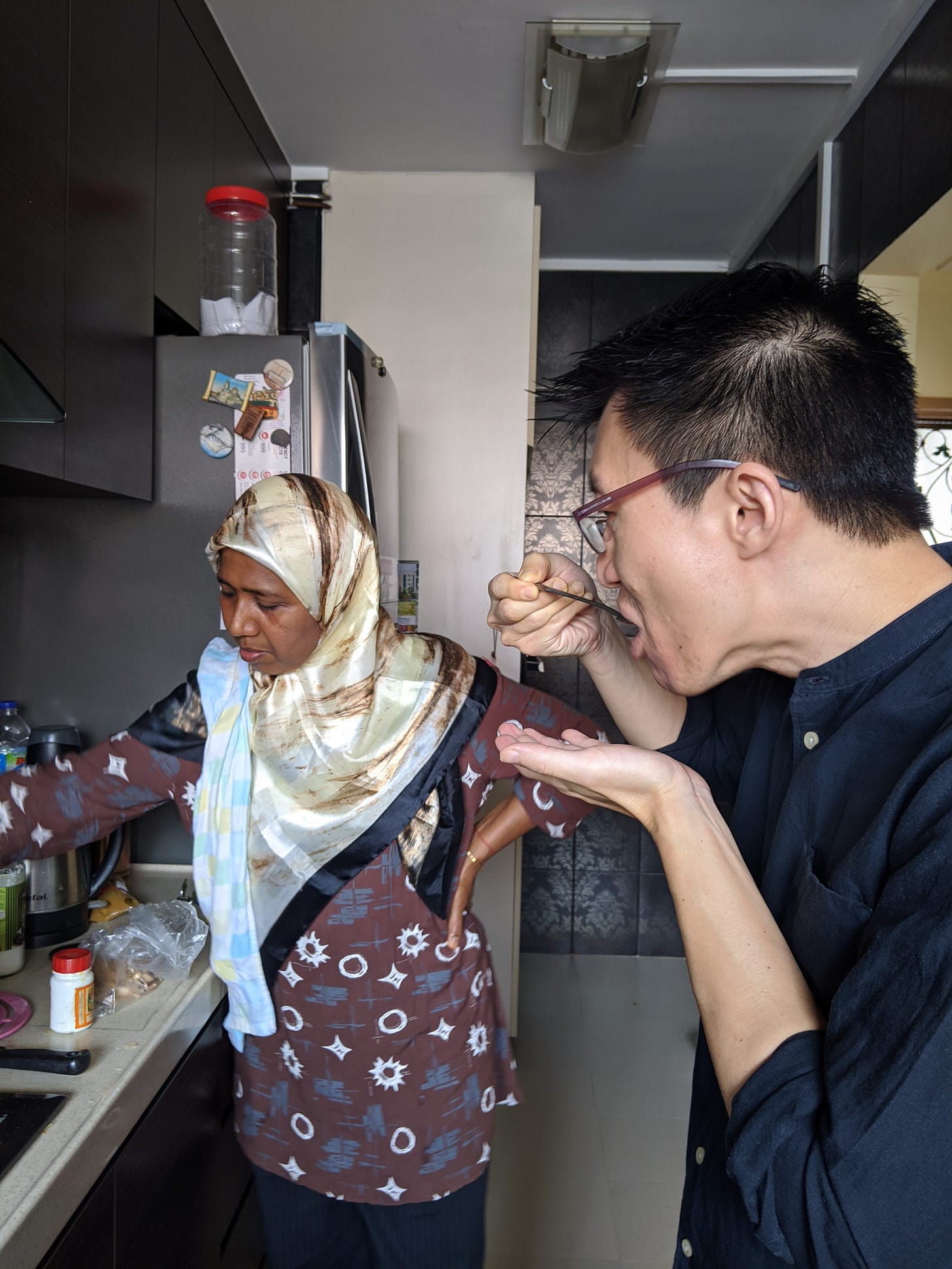On Agaration
What is agaration? How can new, less experienced cooks try to cook the same way? This newsletter, Pamelia Chia from Singapore Noodles, Mama Zi, and Baby T share their thoughts.
Happy Lunar New Year to all our friends celebrating, and for our friends who enjoyed the long weekend, we hope you’re starting the week rested and bright :-)
This is our first Spice Zi Tea & Friends newsletter of the year, and we hope you will enjoy it as much as we did writing it!
Ever since Spice Zi Kitchen began, Baby T has been pestering Mama Zi for recipes, a list of ingredients, and exact measurements of these ingredients. This has been a real struggle given Mama Zi does not measure her ingredients when she cooks. She gauges quantity by feeling. To her, like many other older home cooks, cooking is not a task of precision. It is a matter of agak-agak.
“Agak-agak” is a frequently used term in Singlish with “agak” being a Malay word that describes an estimation or a rough guess. Mama Zi sees agaration as a means to make food that suits the eater’s personal preference.

“If I say one spoonful but you feel it’s not enough, then top it up. It’s OK, you are not doing a science experiment. Cooking is not a science experiment”
When sitting down with Mama Zi and listening to her speak about cooking and its “technicalities”, it is easy to understand why agaration comes naturally to her and why she hesitates to give recipes with precise measurements. For Mama Zi, it was rarely a matter of following a recipe book. She started cooking by observing her in-laws and aunties cooking in the kitchen and then replicating it in her own space. This is unlike many new cooks nowadays, an example being Baby T, who picked up cooking while living overseas. Her first point of reference or help came from online recipes.
Having cooked alongside Mama Zi every weekend for over a year now, Baby T recognises that a recipe helps, yes, but “nothing can replace kitchen experience”. She notes that just because you follow a recipe to the T does not mean that you will get the best version of the dish. It takes a personal understanding of how different ingredients interact with one another when you cook them a certain way, to achieve a version of a dish that suits you best. This is, I suppose, the magic of agak-agak - knowing how to create what you wish for.
I approached Pamelia Chia from Singapore Noodles to hear what she had to say about new cooks and how they can understand “agak-agak”. Pamelia readily admits that “getting a new cook to completely cook based on instinct is a tall order”. She suggests that it is best for new cooks “to follow a well-written, reliable recipe, and then adjust the seasoning (salt, sugar, acid) to your own taste”. Even then, Pamelia encourages new cooks to not obsesses over the precise time or quantity given in a recipe and instead, take note of the descriptions on how the end result of a particular step should look, feel and smell. She recommends one cookbook writer who offers these descriptions - David Thompson. His description for a curry was that ‘it should taste primarily sweet, with a slight tang and mild spiciness’. Visual, olfactory and flavour cues will give new cooks the opportunity to recognise the “right” amount of an ingredient without referring to a scale or a stopwatch.
For the most part, Mama Zi believes that cooking with agaration is the product of plain trial and error in the kitchen. She cheekily claims, “I don’t call it a failure if it does not turn out like the original. I just call it my own''. To her, this sort of spontaneous cooking is the best way to learn how to adjust flavours, problem solve and ultimately, make a dish work. Despite this, Mama Zi acknowledges that the “base” of every dish usually has standard measurements and that the best ingredients to agak-agak are the complementary ingredients. For example, in mee siam biriyani, the amount of meat and noodles are always consistent in proportion. Other ingredients, like carnation milk or rose water, biriyani powder, can be changed according to the eater’s preferences.
Another useful tip that Pamelia shares is “to always be tasting whatever you’re cooking the whole way, not just at the end. Tasting the whole way allows you to make adjustments along the way and sometimes might save the dish”.
In their own ways, both Mama Zi and Pamelia describe agak-agak cooking as a process that requires the cook to be fully present in the kitchen. The overarching idea from both of them seems to be that, culinary answers are not all in a recipe, but also in the cook’s ability to maneuver the recipe to suit the preferences of those eating his/her food. It is useful to think of agaration as a muscle that will be strengthened with time and experience in the kitchen. If you’re looking to get some of that agak-agak magic, joining your mother or father, relative, partner, or any cook in the kitchen regularly and following their cooking with your eyes, your hands, and your nose is the best way to grant yourself that wish. Earnestly assisting them, asking questions on how the result should look like will eventually get you there.

This newsletter is written by Vickland Kaamela Barvin, the youngest daughter of Spice Zi Kitchen. She is a self-acclaimed 'almost vegan’ millennial who loves watching Food King videos and endlessly ‘saves’ anything related to food on Instagram, but with the knowledge of making an avocado salad in the kitchen. However, she is a keen and curious editorial assistant who made this newsletter possible :-) Tell us here if you have any questions or comments.
In other news at Spice Zi Kitchen,
We have spoken on the art and understanding of agaration amongst other things on the Singapore Noodles Podcast. Click here to listen :-) Pamelia releases a podcast every week!
If you haven’t already heard, we started a series called #passthepasar with Pamelia Chia where we document sights and sounds of wet markets and share how we cook produce from. Join us and use the template here. :-)
We have open slots from mid-march onwards, and if you have been thinking about cooking with us, sign up here and you can get a bottle of Mama Zi’s Special Sambal!




